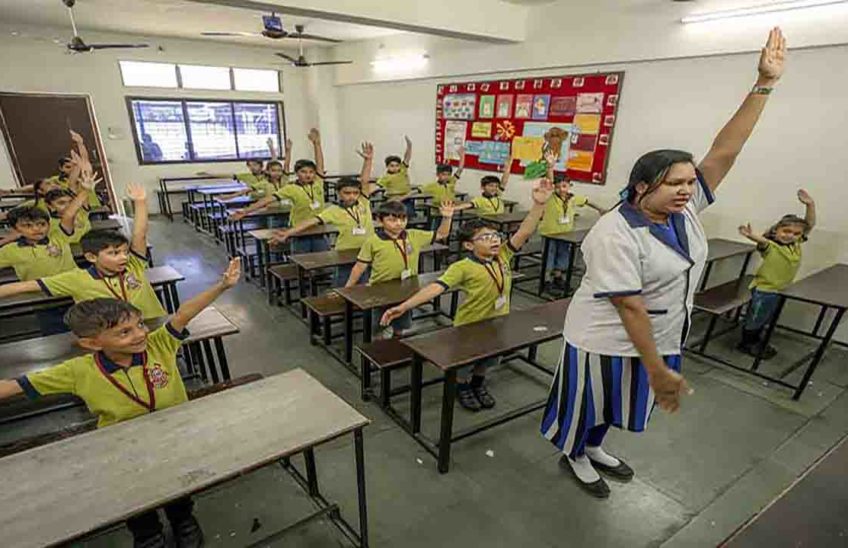
What is Primary Education?
It is said that education is the backbone of any nation. The development of a country’s economy, society, and intellectual capacity are mainly dependent on its citizens’ educational level. The primary education board is the foundation stone of the education system. Early childhood development is nurtured by a good and well-structured primary education system.
Primary education is an essential factor in the educational system. It is the first step in a child’s life, and it lays the foundation for further learning. Primary education provides children with the basic skills and knowledge they need to live a productive life. Primary education is the first phase of formal learning, and it is divided into three components – physical, intellectual, and social.
The physical component includes health, nutrition, and hygiene. The intellectual component includes literacy and numeracy. The social component includes the way children learn to interact with others. In addition to these three main components of primary education, there are also smaller ones such as a child’s development in terms of their cognitive skills like memory and problem-solving abilities.
What is the aim of Primary Education?
The aim of primary education is to provide children with a foundation for success in the future. It also helps children develop good habits that will help them succeed later on in life. In India, primary schools strive to create an environment of happiness, safety, security, and confidence for the child by providing a highly stimulating, caring environment. It is crucial that young children learn at an early age to become creative and enquiring minds. The goals of primary education are to provide a good foundation for further education, prepare children for life outside of school, and teach them about different cultures, languages, and values.
As a result of primary education, your child will be more confident and will have the skills needed to excel in today’s competitive world. It is often considered a time when students are free to explore their interests and talents, make friends and form new relationships, and learn about themselves and their world. The learning process also creates an environment where children can share ideas with each other freely without fear of being judged by others.
Why is Primary Education compulsory in India?
Primary education is compulsory in India as it is considered a fundamental right. It has been recognized by the Indian constitution as an important part of the educational system. Primary Education in India is catered by both the private sector and the Government. As per the Right To Education Act,2009, the Government operates and funds schools providing free and compulsory education both at the State and Central levels. The goal is to enroll as many students as possible to allow them access to basic education.
Primary education is compulsory in India because it provides children with a broad and balanced education. The Indian Government believes that need of primary education is to provide quality education to the students to develop their skills & knowledge. It also gives them a chance to develop their social and emotional skills, which will help them later on in life. The Indian Government has implemented several policies that encourage primary school attendance, including financial incentives and free lunches for students.
What is the curriculum for Primary Schools?
The curriculum for primary schools is a set of guidelines and standards that outline what students should learn in school. The curriculum includes topics such as maths, science, and social studies. The curriculum also includes specific goals that the school should achieve by the end of each year. The curriculum for primary schools is developed by the government and teachers in collaboration with parents and students. The goal of the curriculum is to provide students with a foundation for their future education and life. The subjects of humanities are introduced in the program of study with the aim of making the child familiar with the human world. Additionally, moral education is integrated into the curriculum with the aim of fostering moral sentiment in children as early as possible.
Frequently Asked Questions
Q. What are the benefits of Primary Education?
A. The benefits of primary education are not only limited to the individual but also extend to society as a whole. Providing children with a basic level of education, it creates a better understanding of the world and helps children develop their skill sets as well as improve health, literacy, and economic development.
Q. How can I choose a good primary school for my child?
A. A school is one of the biggest investments you will ever make for your child. There are many factors that go into choosing a good school. In order to make the best decision for your child’s future, you need to know what the school is like in terms of their curriculum and facilities. You should also consider how much time they spend on extracurricular activities, as well as how they will be matched with other students.
Q. What is the role of a teacher in primary education?
A. Teachers have a wide variety of responsibilities and tasks including instruction, assessment, curriculum development, professional development, and planning. They also have a significant role in helping students build their self-confidence and sense of belonging.


